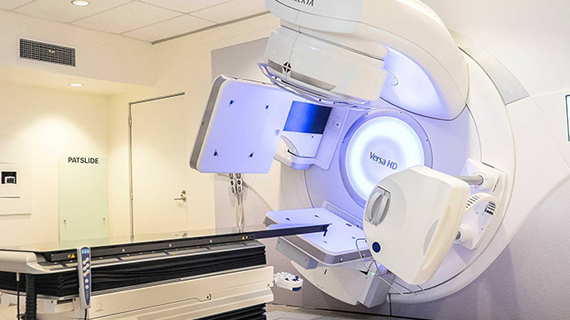Radiotherapy
Radiotherapy
Radiation therapy is applied either alone or more commonly in combination with other treatments. It uses ionizing radiation as a means of destroying cancer cells. This radiation has the high energy required to cause structural, molecular damage to the genetic material of the tumor, with the aim of stopping its cells from reproducing, or even destroying it. Modern radiotherapy machines (linear accelerators) have the ability to focus their energy on the target, much better than the old ones. Nevertheless, the rule is to have burns outside the target. Other limitations of radiation therapy are that normal cells are also vulnerable to radiation, and even that during treatment a large load of free radicals is produced, which burdens the patient with severe oxidative stress (biological burden). Finally, a structural limitation of radiotherapy is that cancer mother cells (CSCs - Cancer Stem Cells) are radiation resistant and survive.
These are the ones that cause the tumor to recur locally. Today we have the way to make CSCs radiosensitive: As long as a oncotherapy session precedes the radiotherapy session. Oncothermia is the most important radiosensitizing agent, with the added advantage that it alleviates the side effects of radiotherapy.
Another type of radiotherapy is brachytherapy, in which the tumor is irradiated with radioactive material placed inside or near it. It is an invasive method.
Radiation therapy is performed with repeated sessions. The total energy to be administered is initially calculated, and divided into equally small doses to reduce acute toxicity to healthy tissues.
Radiation therapy has no pain when performed. However, it has short-term negative effects, such as skin burns, necrosis of neighboring tissues (eg the intestine), dry mouth, etc., depending on the area being irradiated. Long-term effects can be metaradial encephalopathy, induction of new cancer in another organ, radial osteonecrosis, etc.

Why in Personalized Oncology?
With personalization in oncology we are able to revive the patient's hope.
While we do not despise the therapeutic means of conventional oncology, on the contrary, we enrich the treatment....
More

